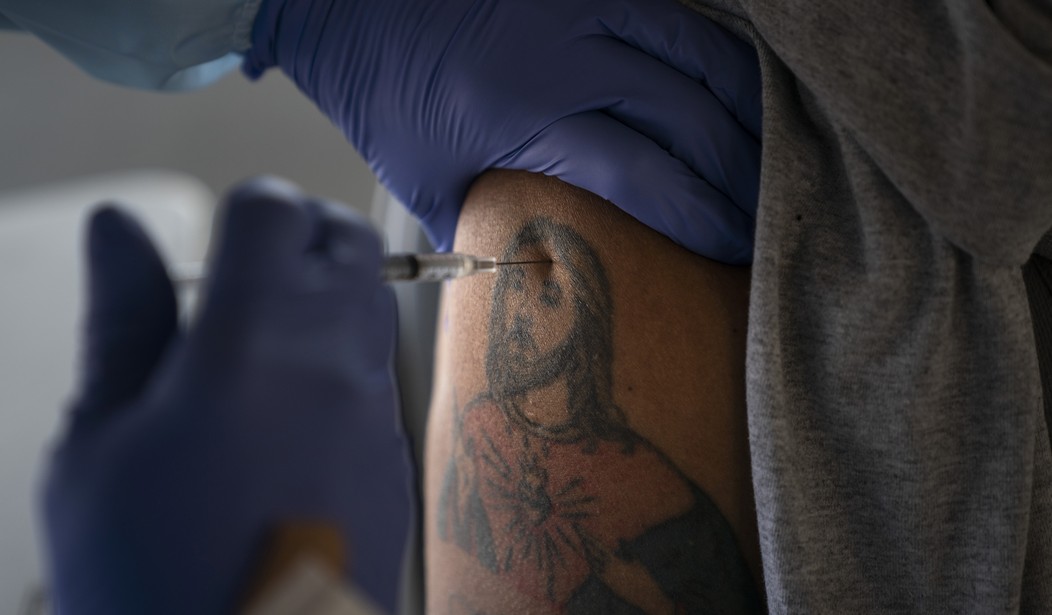Americans who have tried to claim a religious objection to taking the COVID-19 vaccine and were denied may have more ammunition against employers forcing them to take the jab after the most recent Project Veritas exposé.
Pfizer whistleblower and “quality auditor” Melissa Strickler told James O’Keefe that executives wrote explosive emails instructing staff to be secretive about the use of human fetal tissue in the laboratory testing of the COVID vaccine.
Strickler told O’Keefe she doesn’t know whether fetal tissue ended up in the final COVID vaccine product or if it was only used in the research stage.
“They’re being so deceptive in their emails, it’s almost like it is in the final vaccine. It just made me not trust it,” she said.
Senior Director of Worldwide Research Vanessa Gelman told staff not to talk about the human fetal cells used in the company’s vaccine program.
“From the perspective of corporate affairs, we want to avoid having the information on fetal cells floating out there,” Gelman said.
“The risk of communicating this right now outweighs any potential benefit we could see, particularly with general members of the public who may take this information and use it in ways we may not want out there,” she continued. “We have not received any questions from policy makers or media on this issue in the last few weeks, so we want to avoid raising this if possible,” she wrote.
Gelman stressed the importance of secrecy and silence among Pfizer employees.
“We have been trying as much as possible to not mention the fetal cell lines… One or more cell lines with an origin that can be traced back to human fetal tissue has been used in laboratory tests associated with the vaccine program,” she wrote.
Pfizer’s chief scientific officer, Philip Dormitzer, wrote an email that said aborted fetus tissue was used in the company’s vaccine program, but he instructed employees not to reveal that information to anyone, and instead encouraged them to use the Pfizer talking-points script that avoided the issue.
“HEK293T cells, used for the IVE assay, are ultimately derived from an aborted fetus,” wrote Dormitzer. “On the other hand, the Vatican doctrinal committee has confirmed that they consider it acceptable for Pro-Life believers to be immunized. Pfizer’s official statement couches the answer well and is what should be provided in response to an outside inquiry.”
HEK293T cells are reportedly derived from an abortion in 1973, most likely from fetal kidneys. It is true that the Vatican has decided that Catholics can take vaccines derived from lines that are from the 1970s if there are no other options. The Vatican also made it clear that it does not endorse fetal tissue research of any kind. Many Catholics think this confusing position seems like a political game. They believe that all fetal cell experimentation and the medicines or treatments that are made from them are rooted in intrinsic evil. Many Catholic people disagree with the Vatican’s position and have chosen not to use vaccines with ties to abortion, claiming a religious objection.
The catechism does make many references to personal conscience that seem to support the individual’s right to listen to his or her conscience, which is given to them by God, according to the church documents.
Deep within his conscience man discovers a law which he has not laid upon himself but which he must obey. Its voice, ever calling him to love and to do what is good and to avoid evil, sounds in his heart at the right moment…. For man has in his heart a law inscribed by God…. His conscience is man’s most secret core and his sanctuary. There he is alone with God whose voice echoes in his depths.”47
When he listens to his conscience, the prudent man can hear God speaking.
Man has the right to act in conscience and in freedom so as personally to make moral decisions. “He must not be forced to act contrary to his conscience. Nor must he be prevented from acting according to his conscience, especially in religious matters.”53
According to the catechism, while Catholics are allowed to use vaccines derived from aborted fetal cells, the church should not prevent members of the church from following their own conscientious objections based on their religious convictions. Catholics have the freedom to decide for themselves if using medicines that have utilized aborted fetal cells in the process is morally acceptable. As a Catholic, the pope doesn’t have to agree with my personal conscience in order for me to have a religious objection to a product that is rooted in a procedure that the church calls “gravely contrary to the moral law.”
The Vatican’s statement stopped short of demanding that Catholics get vaccinated. In fact, the church supports voluntary vaccination only. According to an AP report, the doctrinal orthodoxy office said “vaccination is not, as a rule, a moral obligation” and must be voluntary.
It’s unclear if this new information that shows Pfizer purposefully misleading the public and downplaying the role of abortion in its vaccine creation will spur any new guidance from the Vatican. It has long been the church’s position that science should work toward creating ethical vaccines and medicines that do not use any abortive fetal research in their development. That position has not changed.
The interview with Strickler reveals many other troubling things that Pfizer has been doing, operating under extreme secrecy, including blacking out windows within the plant when the FDA visited.
The FDA turned up at a Pfizer manufacturing room and blacked out windows so employees could not see inside… #PfizerLeaks
— Candace Owens (@RealCandaceO) October 7, 2021
Watch the Project Veritas video below:










Join the conversation as a VIP Member